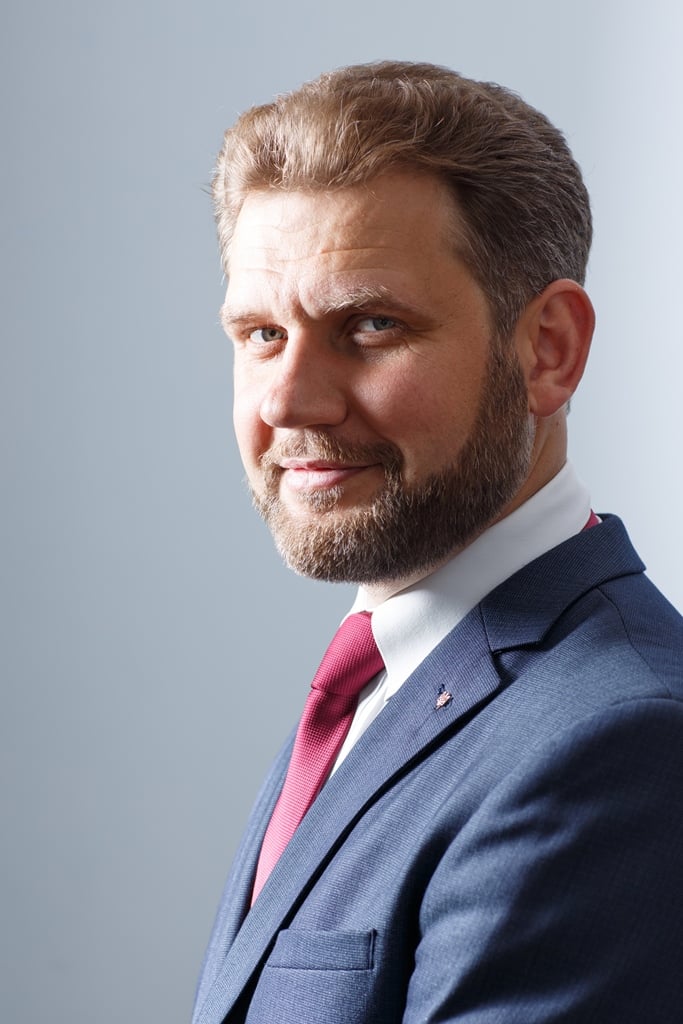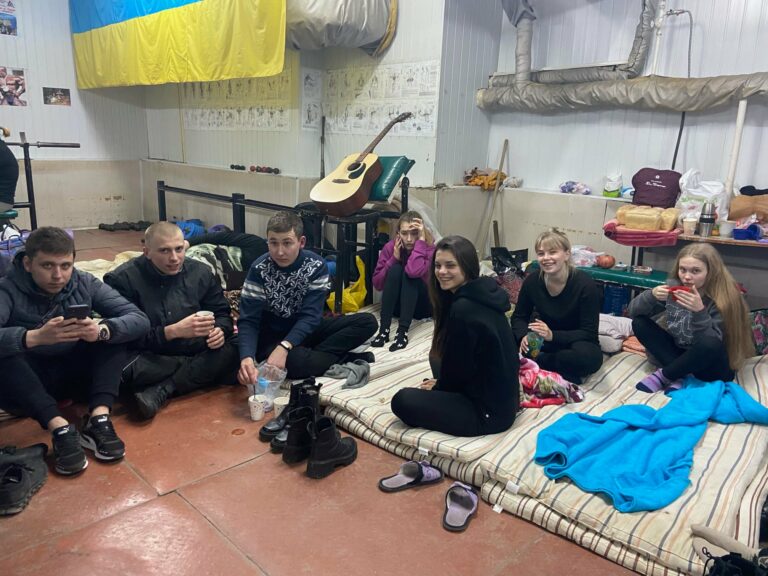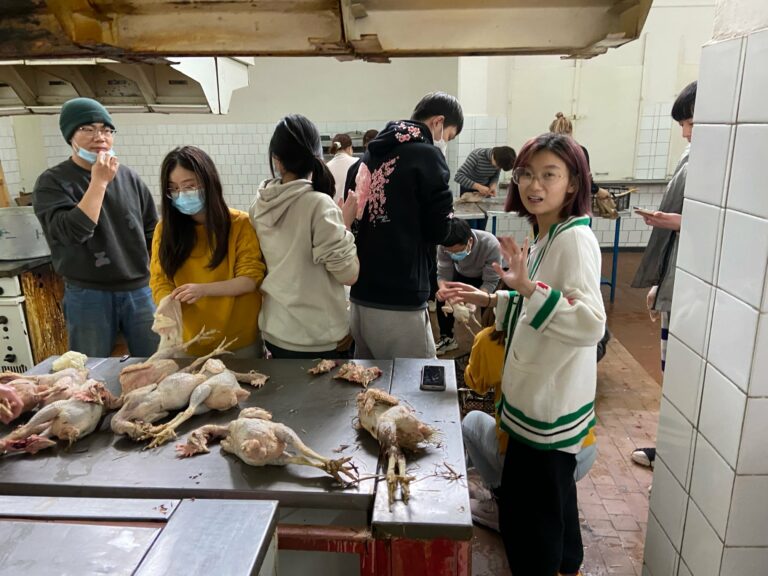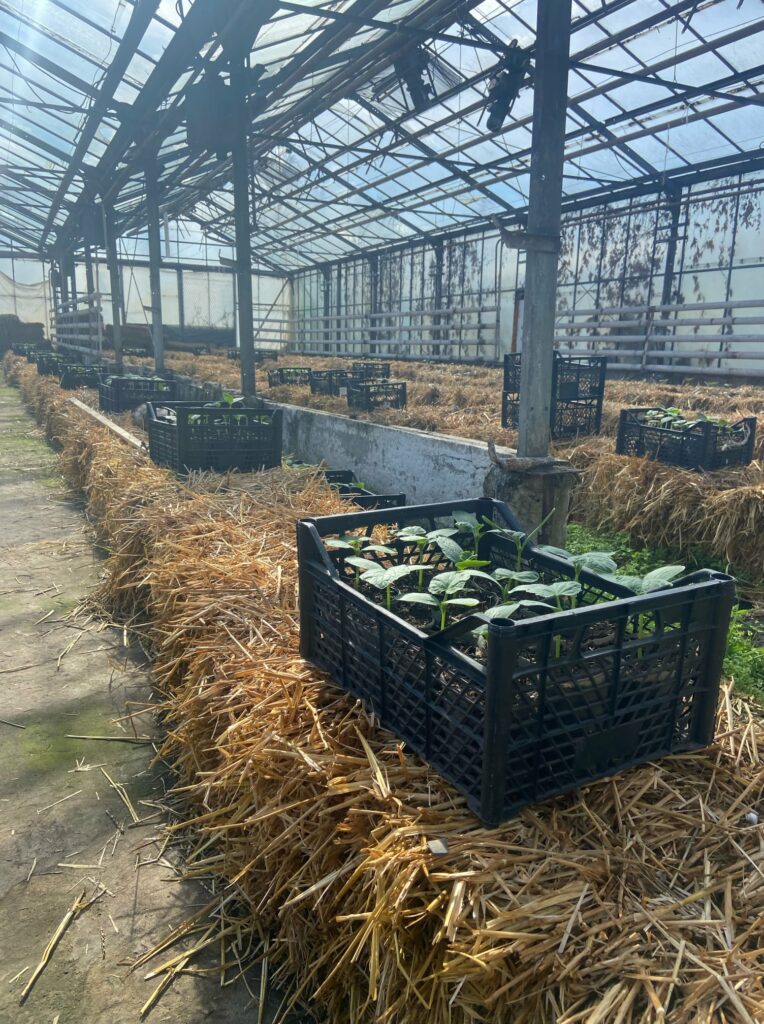The war came to the city of Sumy on the first day, February 24. Enemy tank columns reached the outskirts of the city, shelling began. However, the regional center did not become easy prey – Russian troops met with fierce resistance.
We ask the SNAU Vice-Rector for Research, Yuriy DANKO, how the Sumy National Agrarian University lives in the military realities.

– Mr. Danko, what was the first day of the war like for you and for the University? What happened, how did you react?
– At about five o’clock, there were reports of tanks moving in our direction. At seven in the morning the members of rector’s office gathered at the University, we began to think about how to act. Rector Volodymyr Ladyka on his Facebook page asked students to stay in the campus and professors to stay at home.
We have almost four thousand students at the full-time learning, in total (including part-time and college students) we have almost ten thousand. On February 24, there were many students in the campus: about 170 foreigners and more than two hundred of our citizens. By the way, many foreigners who rented apartments in the city, moved to the campus with the start of hostilities.
– The enemy fired artillery at the city, planes bombarded residential areas. On Facebook, you kept a kind of diary of the war, wrote that the communal infrastructure was damaged, the light disappeared. How did you act? How did you help the students?
– It was a flash-like sequence of events, tank columns came to the outskirts of Sumy, street fighting began. But the city did not give up!
The fighting took place very close to us. At one moment we were warned that in our area (where SNAU and Sumy Higher Artillery Command School are located), “Grad” shelling is expected. Enemy rocket-propelled grenade launchers were located very close to our place. If the shelling had taken place, the buildings would have been destroyed…
There were a lot of challenges. In the first days of the war, we began to improve the shelter system. Professors together with students moved beds, mattresses to the basement, arranged “field kitchens”.
All this time the administration, accounting department worked. We paid salaries for February and March. By the way, our graduates living abroad contributed to the special fund (from which we pay part of the salary).

– How did the foreign students feel? How did they manage to evacuate?
– We appealed to the embassies of the countries (India, China), where they come from, asked to help organize a “green corridor” for evacuation. There were students of our University and Sumy State University, the two universities coordinated efforts to help them to leave safely.
The Chinese embassy was in constant contact, they wanted to take their citizens out on the first day of the war, but the highway was occupied by enemy tank columns. Provocations were not ruled out: Russian military could fire on buses with foreign students and say that the Ukrainians did it… That’s why we waited for the “green corridor” and did everything to ensure that young people had food and water.
It helped a lot that we are an agricultural university. Our graduates and farmers quickly set up food delivery. They brought potatoes, pasta, meat. In addition, we have two dozen cows, so we have own milk.
I even have a photo of Chinese students emboweling chickens and making stew. Everyone wanted to get involved. Students cooked, cleaned the territory, threw away the snow. There were lots of jokes! Everyone liked the photo, where a tractor pulls a shot up enemy tank (the farm will need it!).

It was difficult when the enemy destroyed the electrical substation and the light and water disappeared. But we quickly set up portable generators and restored electricity and water.
I want to say that the war showed what’s what. The team was very united, professors spent nights with students in shelters, they cooked at home and brought food to the campus. For example, associate professor of the Faculty of Food Technology Vasyl Tyshchenko helped to cook stew, roasted chickens. And the head of the “vivarium” Andriy Mukha milked cows.
Our teachers and students have proved that Ukrainian farmers are really “hard nuts”.
– Did you manage to resume the studies?
– Yes, on April 4, distance learning was resumed at the University. And most students (including foreigners) are already studying.
– What is the state of the University buildings today?
– The central campus was not damaged. The blast damaged the greenhouse (glass is broken), windows in the boiler premises flew out.
The situation with colleges is worse. On the second day of the war, the shell hit a house near the college in Sumy. The blast knocked out windows and doors and destroyed the ceiling. The building needs to be rebuilt. Today we are considering how to transfer the educational process of college students to the University.
The P.S. Fisherman Malovystorop College in Lebedyn district was also damaged. The village of Maly Vystorop was occupied, and rashist troops were stationed in the college building. They smashed all appliances and furniture, burned books, crashed windows. That’s why we are thinking about how to move students to the territory of the University. 241 students need to be relocated to dormitories…
We transferred the computers to the basement of the central campus. There is a unique Center for the collective use of scientific equipment on the territory of the University.
Chromatographs, spectrographs, PCR laboratory and other equipment of this Center were also carefully moved to the basement. Professors, technicians and students helped to do it.
– What helps to maintain optimism?
– We believe in our victory. We have a lot of guys (students, professors, graduates) fighting in the Armed Forces and territorial defense units. We are confident that they will defend the city and that Ukraine will win.
We understand that the war is not over yet, so we get together, decide what and how we can do, what we can be useful for. We help with ammunition, the other day we raised funds for a quadrotor.
Besides, last week the rectors of Sumy higher education institutions had a meeting, discussed new admission rules, and how universities could survive the war.
The city is training unique specialists that the region will need after the war, and our task is to enroll first-year students and continue quality training of those who are already studying. Our university trains agriculturists, food technology specialists, builders. It is very important!
– Recently you searched through Facebook for corn for sowing and were very glad that it was found. Who helped you?
– In fact, we needed to find 15 sowing units (bags) of corn. This is silage corn, which is needed for cows. We think how we will feed the cattle next winter. Entrepreneur from Poltava region Maksym Bernatsky helped us, we are very grateful to him.

We have already started agricultural work on the research fields of our institution. Tractors are working, we are preparing for sowing. We are agriculturists, we do what we have to do.
– How do you see the University after the war? In your opinion, what will change?
– So far, we are solving the issue of short-term planning, thinking about how to survive here and today. But one thing I know for sure: there will be a lot of work. As Churchill said, “I promise you blood, sweat and tears”. We understand that difficulties are inevitable. 40 percent of export revenues to the state budget came from agriculture, and this year the sowing campaign failed in many regions. In Mykolayev region there are military operations, the Kherson region is partially occupied. Budget revenues will be lower, which means that funding for education and science will also decrease.
We plan to work as actively as possible with international funds, to submit projects for grant competitions.
We hope that international cooperation will help the institution (both our and other higher education institution) to stay afloat.
Currently, about ten SNAU professors have left for Europe and received scholarships. These are our “envoys” in the European Research Area.
I am sure that we will rebuild everything and in a few years the University will become even better.
Svitlana GALATA interviewed
